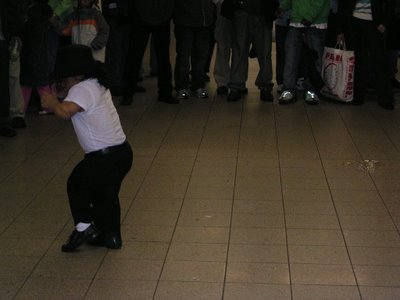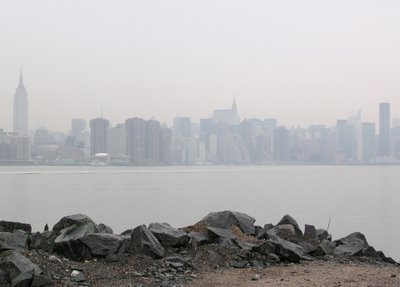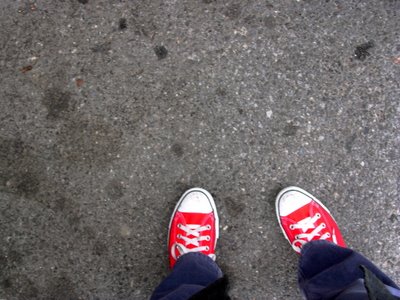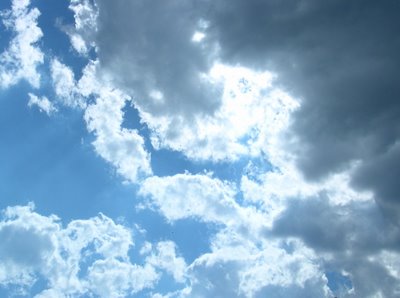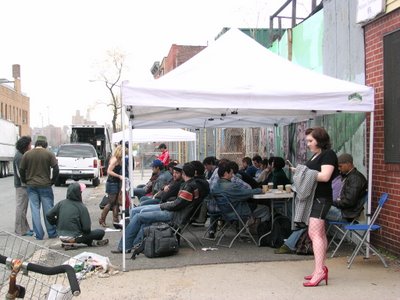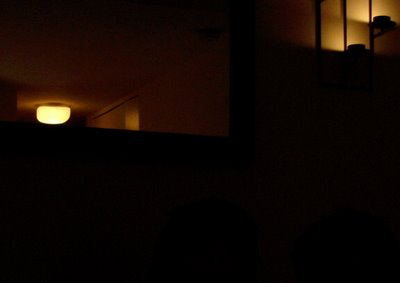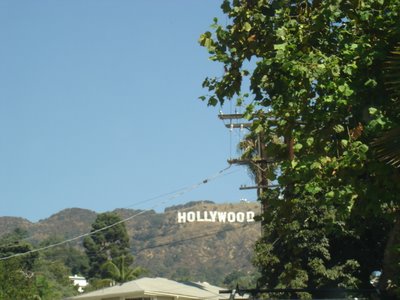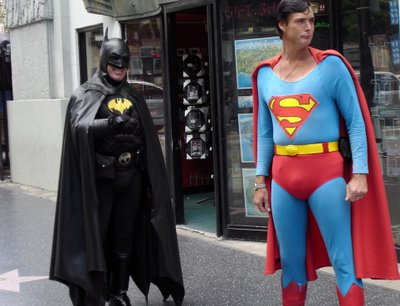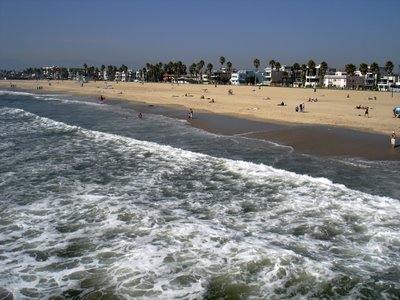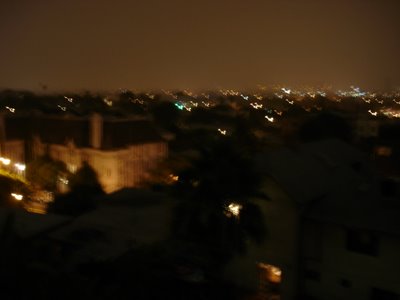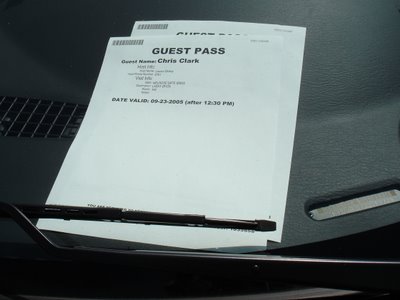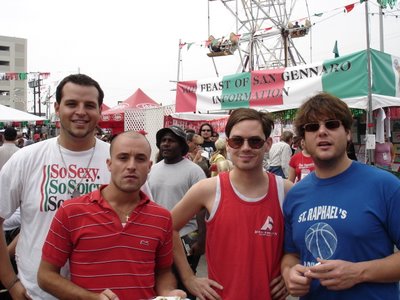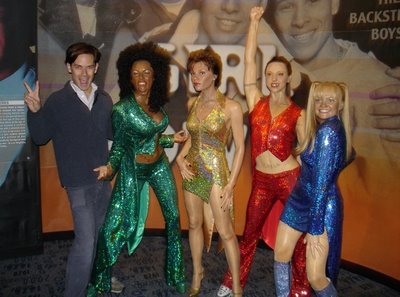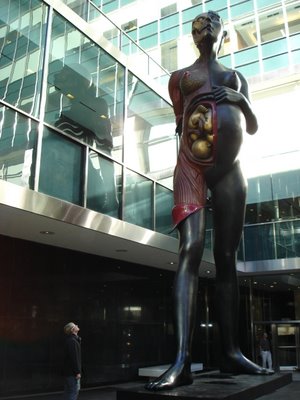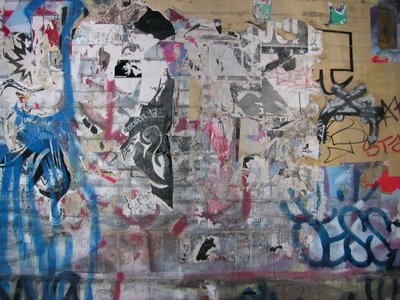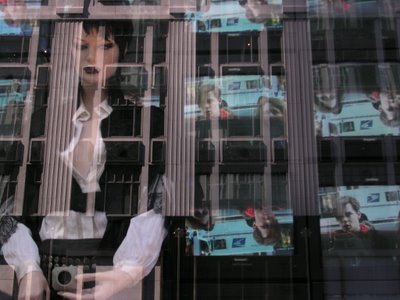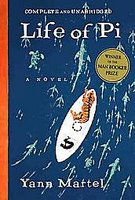"United 93"
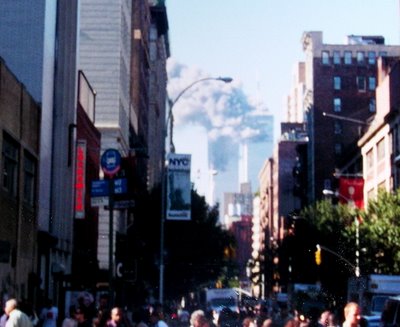
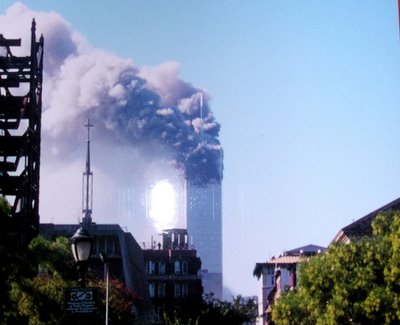
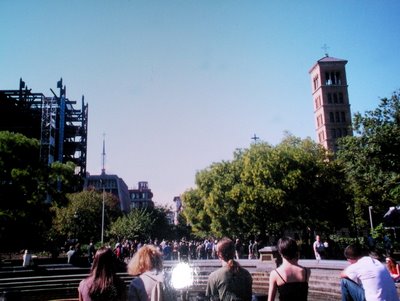
(Photographs taken by me from downtown Manhattan during the first week of my Sophomore year at New York University)
I wanted to begin with "See This Film." I wanted to be so unspeakably called to action that words would not begin to describe how moved this work had left me. Yesterday afternoon, with a girl whose friendship more or less bloomed from the ashes of the time following September 11th, I saw Richard Greengrass's new film "United 93." Unspeakably called to action would not describe the experience of seeing this polarizing work. Unspeakable. Now perhaps that's getting closer. In fact I found myself unable to say a word during the film's near two hour running length. (It should be noted that the last time I didn't utter a sound during any movie of any genre was potentially before my speaking years...) I just couldn't find the words to give merit to the process of discussion. Not here. Not now. Not yet. Movement itself was, in all honesty, quite difficult. From the second the film began, with the terrorists' morning-of prayer, to the final cut to black my body sat frozen, too alert to move, riveted from beginning to end. Undeniably shaken, tensed, tightened and on edge. The majority of the picture cuts exclusively between the experience boarding and on-board Flight 93 from Newark to San Francisco and in the military and F.A.A.'s on ground confusion, panic and determination in handling the horrors above. The performances are, for the most part, documentary-style realistic, stretched (in my opinion) only slightly during the tearful on-flight phone calls to friends and family members. The director's commitment to realism and authenticity is only aided by the enlistment of nine central F.A.A. and military employees who actually play themselves performing the duties from their shifts on that fateful day. "United 93" is, without question, an amazingly powerful film. And one that only after having seen myself, can I fully appreciate why so many others would adamantly choose not to. "United" handles the horrors of that particular morning on this particular flight with an unwavering sense of humanity, nuance, realism and truth. The exploitation factor simply does not exist within the film. It is, however, the very existence of this film (And by that I mean, The Fact That It Does Exist) that tips slightly towards that of the exploitative. Mr. Greengrass, at his own explanation, received the blessings of at least a majority of the victim's family members. And for this he is wholly justified in moving ahead with his script and his vision. On the other hand, this in no way necessarily justifies the film's existence to the millions of other Americans who feel a great personal connection, fear, anxiety, anger or loss as a result of the events on that early Fall morning. It is all of us (for whom I'm imagining the film was made) who perhaps have a right in addressing that the reasons and motivations behind this work are still boldly and disarmingly unclear. Is it to remember? I'd venture to state that there isn't a one of us who doesn't. Is it to understand? While I now know more about the particulars of the victim's lives (due not to the film's slight character development, but through my own post-viewing research) Yes, but that in no way explains away what cannot be explained. Is it to grieve? To appreciate? To unite? Or is it more to, dare I say, capitalize? To capitalize in the most humane and justifiable of ways, to recreate with "honor," but to capitalize just the same. One cannot discredit the thrill and bombastity evoked by being the first auteur to put his stamp on the definitive horror of our time. To be the first to essentially "go there." Were this a work of fiction, Oh God were it, a film of this style and this pace and this delivery would seem more understandable. An edge-of-your-seat thrill ride with gritty camera angles, a rich and real supportive cast and a twist ending to rattle your nerves! It would be more easily understood, probably even acknowledged as relevant or significant, but surely much of the audiences' visceral investment would be lost. It is the fact that this actually happened that keeps us riveted. It is because the names up there we are hearing and the lives up there we are seeing taken away truly were lost, that speeds our heartbeats and shakes us to the core. A filmmaker and friend of mine said to me a few weeks back in regards to the imminent release of this very picture, "Film is not for the artless recreation of history." Lisa Schwarzbaum of Entertainment Weekly wrote, before giving the film an A-, "Do we need to see this? No. There's no right or wrong way to remember 9/11, no shame in skipping the movie-fied sight or prize for those who dare to look." So all I'm left with, aside from awareness and a sense of dread for the three upcoming flights ahead of me, is a nagging desire for the answer to "Why?" this film was made and "What?" exactly we should take from it? "To honor," I imagine would be the official studio response. To honor, yes, to honor the bravery is all it seems we have to cling to when the theatre has cleared and the afternoon sun re-awakens our numbed vision. Honor, perhaps is all we have to make from this most unimaginable recreation of our most unimaginable destruction.

